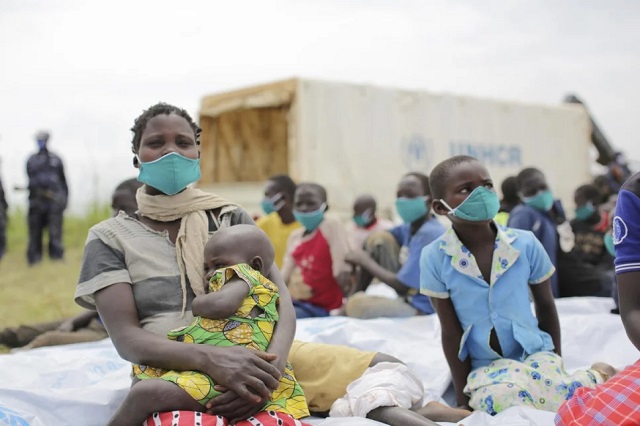
Kampala, Uganda | Ronald Musoke | The UN Refugee Agency, the UNHCR, has received €2.2 million (Shs9bn) from the German government to support refugees and the host communities in Uganda.
The money will enable the UNHCR provide much needed healthcare, water, hygiene and sanitation facilities as well as education services to refugees and their host communities over the next three years.
This will be done in collaboration with the relevant Government ministries.
According to a joint statement released by both the Germany Embassy in Kampala and the UNHCR, the funds are part of Germany’s € 14 million (Shs57.4bn) contribution to the UN refugee agency to support refugees and their host communities within the East, Horn of Africa and Great Lakes Region, over a four year period.
Germany remains a major donor to Uganda’s refugee response. In addition to providing direct funding to UNHCR over the last five years, the European country has contributed over €37 million (Shs151bn) to Uganda’s Refugee Response Plan as part of its multi-faceted support to strengthen integrated health care, water, hygiene and sanitation and education services across Uganda’s refugee hosting districts.
Hans von Schroeder, the German Deputy Ambassador to Uganda noted that Germany remains committed to supporting Uganda’s refugee response in the future.
“Uganda’s inclusive approach allows us to support both refugees and their host communities. The Coronavirus pandemic has dramatically exacerbated the challenges in the host communities – Germany’s latest contribution will help to ease the pressure,” he said.
Uganda, which currently hosts close to 1.5 million refugees is the largest refugee-hosting country on the African continent and serves as a role model worldwide for the implementation of the Comprehensive Refugee Response Framework (CRRF) and the Global Compact on Refugees – a blueprint that calls for greater support for refugees and the countries and communities that welcome them.
Since the launch of the CRRF in 2017, the Uganda government has included refugees in the national development plans and endorsed sector plans to improve delivery of social services in refugee-hosting areas such as education, health, water and environment, as well as jobs and livelihoods.
Uganda’s progressive refugee model enables refugees to access social and community services like Ugandan citizens and improves access and quality of services for refugees and their hosts across the refugee hosting districts.
However, resources for the refugee response have been inadequate to address the increasing needs of a growing population. The outbreak of COVID-19 in March 2020 and the lockdown measures to contain its spread posed additional challenges, exacerbating an already dire situation.
Jöel Boutroue, the UNHCR Representative to Uganda noted that the Covid-19 pandemic has had significant impact on refugee lives, their means to earning income as well as education, putting vulnerable populations in an even more dire situation.
“Germany’s contribution is critical to ensure that immediate needs can be addressed and that hard-won gains towards finding durable solutions for refugees and their host communities are protected and enhanced.”
 The Independent Uganda: You get the Truth we Pay the Price
The Independent Uganda: You get the Truth we Pay the Price





